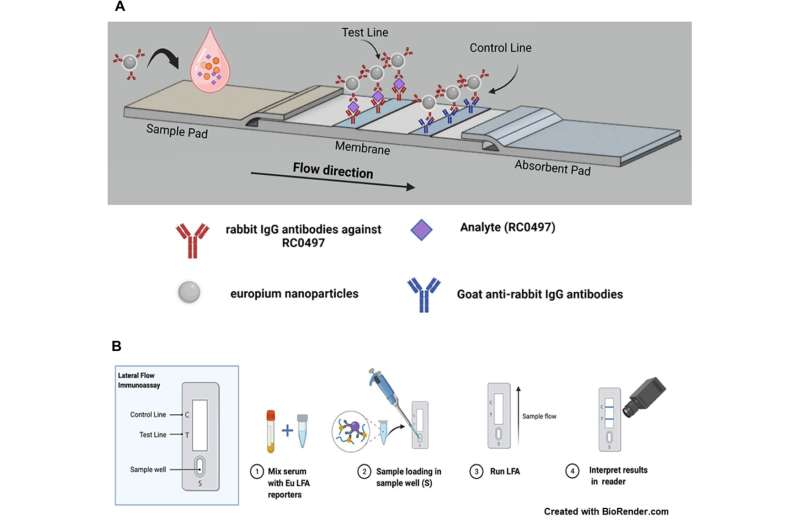In their paper published in the open-access journal PLOS ONE, the group describes how they isolated an enzyme that was present in all groups of Rickettsia and used it as a marker for developing a test that could be done quickly to diagnose tick-borne SFRs.
Tick-borne SFRs are a family of diseases, all caused by the Rickettsia bacteria. As the name suggests, they are transmitted to humans from infected ticks. The researchers note that the number of people infected is rising due to encroachment on lands where ticks live, and a warming planet, which is increasing the places where ticks can live.
People infected with a tick-borne SFR can experience a range of symptoms, running from mild to severe. Treatment for SFRs includes antibiotics, and early diagnosis is considered to be crucial for a good outcome.

